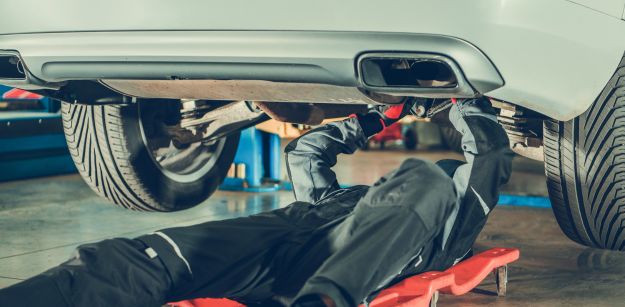GERMAN Vehicle Fix: German Auto Center of Austin specializes in Mercedes Benz, BMW, Porsche, Audi, Volkswagen, and Mini Cooper vehicles. Here are 10 things you should know about service and repair. We have only done that since the 1970s. We have taken the time to share with you what we have learned about German-made vehicles over this time.


1. Specialized Service: Not all automobiles are created equal. Vehicles made in Germany are designed to deliver the performance you’ve come to expect. To guarantee execution, specialty apparatuses and costly symptomatic hardware is expected well defined for your make, model and brand. Avoid generic auto repair shops that work on all makes and models but lack the expertise or equipment necessary to properly maintain and repair your German performance vehicle. If you’re interested to find out more about car repairs and panel beating visit NRC Group.
By consulting a professional or even your dealer first, you can save time, money, and stress in the long run. Instead of fully diagnosing and locating the issue and carrying out the necessary repairs, generic shops that are unable to provide an accurate and complete diagnosis for your German-made vehicle will frequently throw parts at it and replace anything that might be related to the issue.
2. Your vehicle has as many as 90 PCs ready. Moving computers and electronics make up the majority of today’s complex German automobiles. Today’s Mercedes Benzes, Audis, Porsches, BMWs, Volkswagens, and Minis typically have thirty (30) or more onboard computers and control modules. Some models have up to ninety (90) electronic control units. These modules require practice symptomatic gear to direct fixes, trade and program suitably for your vehicle.
All that from stopping mechanisms, directing, choke, transmission and motor administration are totally interconnected on a typical correspondence transport inside your vehicle. Occasionally, these modules ought to be checked for any shortcomings or inconsistencies and update their programming according to the producer administration releases.
3. Parts from the original manufacturer and more. Check to see that your dealer and your professional technician both have access to the same parts. Although the original manufacturer’s parts are best for most applications, you might be able to save a lot of money by purchasing higher-quality performance parts for things like clutches, brakes, and suspension. Because not all parts are created equal, it’s best to talk to a professional who knows your vehicle best.
4. When is service due? Your automobile is programmed to notify you whenever it believes that conditional service is required, regardless of whether you drive a late-model Mercedes Benz, BMW, Porsche, Volkswagen, or Mini Cooper. Engine oil service, cabin micro air filter, engine air filter, brake fluid, brake pads, and even your annual state emissions test are all included, depending on your specific make and model.
To read and reset conditional service intervals following service, specialized factory diagnostic equipment is required. Kindly see German Auto Place for a total help examination. Keep in mind that dealers want to sell you a new car after 50,000 miles, and that the “free” prepaid maintenance is not as free as it seems. For turbo and supercharged engines like the 1.8T and 2.0T in Volkswagen and Audi, you should schedule a basic oil change every 5,000 miles, and for all other late models, you should do it every 7,500 miles. It is not recommended to mix engine oil for TDI diesel engines. Full synthetic oil should not be used in older models that use mineral-based oil. Always adhere to the oil viscosity recommendation provided by the manufacturer or consult an expert. Mobil 1 0W/40 engine oil is best for most German-made makes and later models when driven in Texas, with the exception of vehicles with mechanical lifter designs, such as the BMW M-series, which requires oil with a weight of 60 and TDI diesel engines.
5. Are my tires to blame for the incorrect shifting in my transmission? Mercedes Benz, BMW, Audi, Porsche, Volkswagen and Smaller than expected all utilization restricted slip differentials. Whether you drive a Porsche 4S or an Audi A6 Quattro, your tires must have the same circumference. A difference of 2 centimeters (or 2/32 inch) in tread depth between tires on the same axle can result in rotational speed variations that will wreak havoc on the drive train management systems of today. On four-wheel drive systems like the Audi Quattro, mismatched tires should never be used on the same axle; Within 2 cm, the circumferences of all four must match. Keep in mind that tire wear will affect a tire’s circumference, so they should be the same age. It is suggested tires on a similar hub be supplanted simultaneously and on account of the Quattro frameworks, every one of the four tires.
6. Squishy brake pedal Moisture is attracted to brake fluid. The brake fluid in your vehicle should be changed every two years. A conditional service reminder will be set on most recent vehicles.
7. Consuming fresh air. Most German fabricates suggest supplanting the lodge miniature air channel each 40,000 miles. Keep these filters in mind because they filter the air you inhale. Additionally, a clogged or dirty filter can damage the blow motor resistor as well as the motor itself, making it work harder.
8. Prevent flooding in the interior. Make the effort to clean the drains on any Mercedes-Benz, BMW, Audi, Porsche, Volkswagen, or Mini with a sunroof. A series of drains extend from the sunroof, through the vehicle’s body, and out from underneath the vehicle on all sunroofs. Water will back up and flood the interior of the vehicle if this becomes clogged with dirt or other debris. The delicate electronics in your vehicle’s seats cannot withstand water, necessitating costly repairs.
9. Have an extra key. A spare key for your German vehicle should always be on hand. When electronic keys fail, the car won’t start, leaving you stranded. All later-model Mercedes-Benzes, BMWs, Audis, Porsches, Minis, and Volkswagens have security chips that link the key to the car. These chips can’t be changed, and if a key dies, your car won’t move.
10. Make it a point to request help. For additional helpful hints regarding your German car, visit Central Avenue Automotive or come see us in person. We will be glad to examine any inquiries that you could have with your German produced vehicle.



